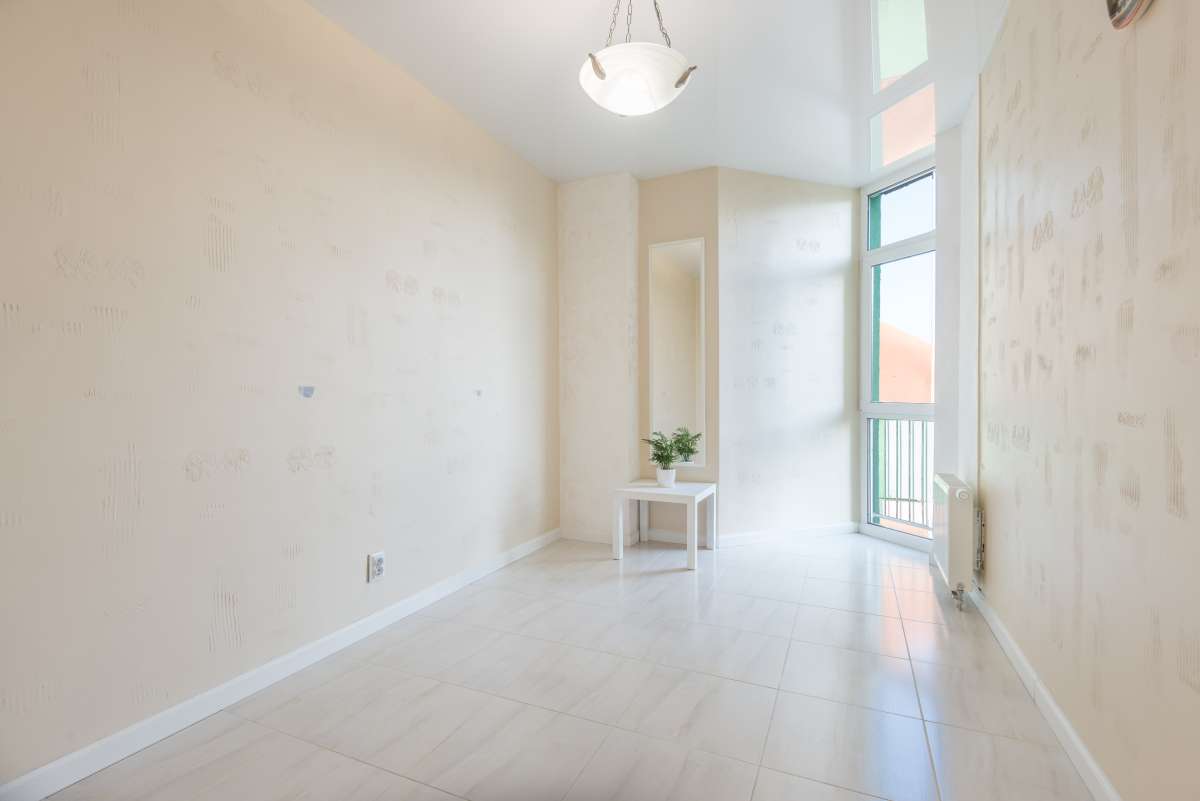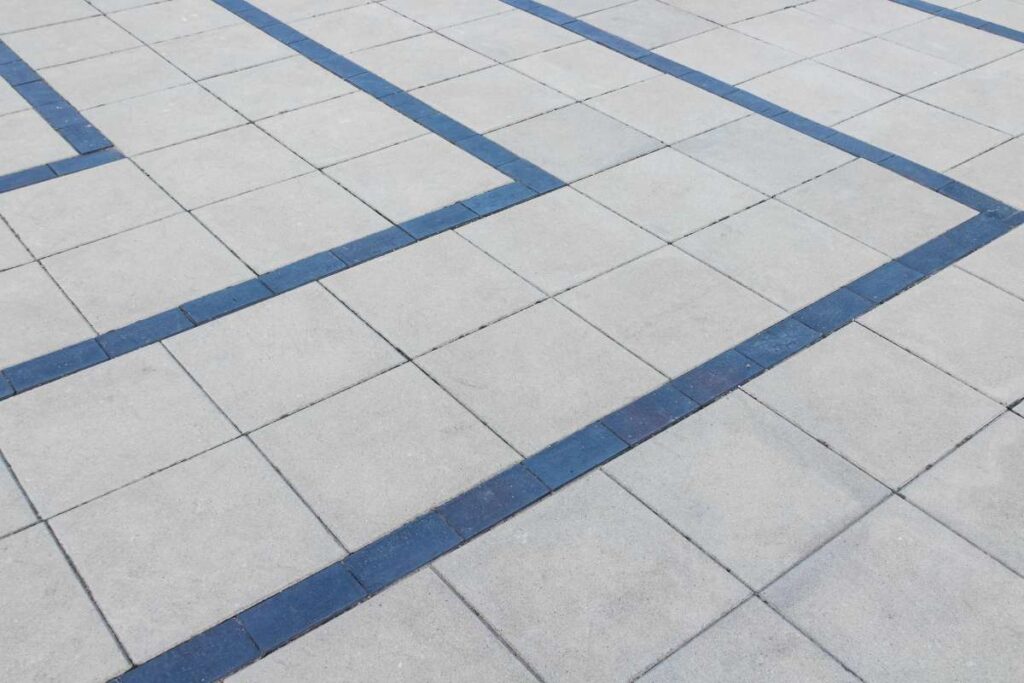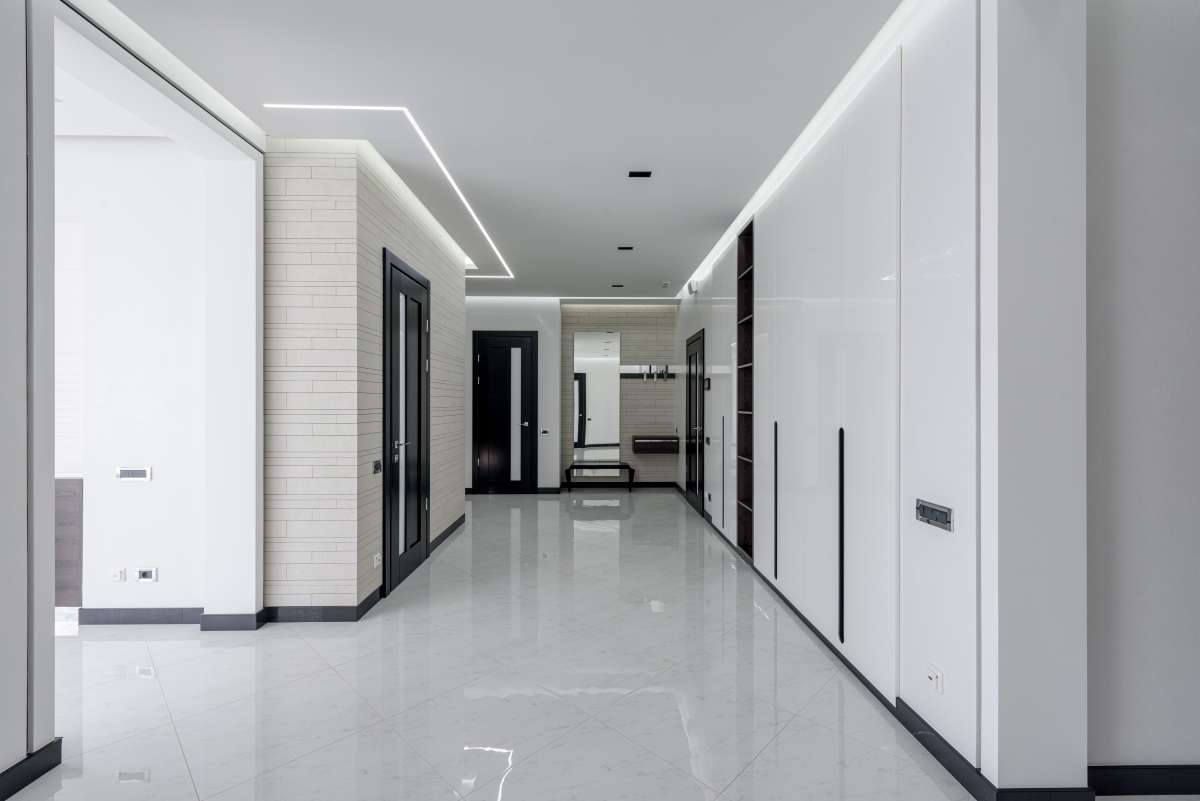The usual advantages of tile flooring, such as its longevity and low maintenance, are well-known. While these benefits are clear, there are others that are just as important to consider.
What are the special advantages that you cannot receive from other flooring options? The following list will give you a fresh perspective on the advantages of tile flooring.
The Advantages Of Tile Flooring In The House

Protect The Environment
There is a wide variety of tile materials, and they all have some additional eco-friendly quality. Clay, for instance, can be used to easily create ceramic and porcelain tiles.
New technology have made it possible to reclaim quarries at a much faster rate, preventing and decreasing environmental harm, making quarry stone an outstanding environmentally responsible alternative.
Stone tile is both durable and recyclable. When extracted responsibly, limestone can be included among the earth's renewable materials.
Install When There Will Be Water Nearby
Carpeting is not as water-resistant as tile materials like ceramic and stone. Constant exposure to moisture, however, can cause warping even in laminates.
Limestone and other porous stones are water resistant and less hazardous to walk on when wet than tiles made of marble.
They are not damaged by water exposure. Because of the prevalence of water in these spaces, tile is a popular flooring material for kitchens and bathrooms.
Improve The Quality Of Your Indoor Air
Carpet fibres are notoriously difficult to keep free of allergens and grime. Laminates are more low-maintenance than natural hardwoods, but their synthetic construction releases VOCs into the air.
Asthma sufferers will benefit from a natural wall tiles since it helps keep the air clean. They don't off-gas like some other materials, and they're easy to sweep clean.
Tiling a doorway is a great approach to reduce the amount of dirt and allergens tracked in.
Minimise Your Need For Indoor Cooling
Tiles, especially stone tiles, can provide a more soothing atmosphere than carpet or laminate flooring. Because of their capacity to keep indoor temperatures down, tiles are a popular option in warm climes.
When the temperature outside is high, but air conditioning is out of the question, ceiling fans & tile flooring can provide welcome relief.
Incorporate With Radiant Floor Heating
Even if you reside in a colder area, radiant floor heating might make tiles the ideal flooring material. Enjoy the benefits of a cooler summer and a warmer winter with this clever design.
Laminate flooring isn't as water-resistant like ceramic or stone, but radiant floor heating can be installed underneath it.
Thus, allowing moisture to escape is crucial for the performance of ceramic and stone tiles. Even after the heating system has been turned off, they are superior to laminate in terms of heat retention and conductivity.
Just picture how nice it would be to lay your foot on the floor on this tile floor in the bathroom and feel the warmth of the radiant floor underneath.
Get A One-Of-A-Kind Look
The designs of carpets & laminates are extremely generic. Laminates can be found that give the impression of wood or tile, but they can never match the individuality of a carefully crafted tile installation.
Tiles can be customised to fit any design, and then arranged in a variety of ways to create unique mosaics. When it comes to creating stunning patterns on the floor, no material compares to tile for its diversity and beauty. You can achieve a one-of-a-kind look without resorting to elaborate haircuts.
The veining and colouring in marble tiles, for example, ensure that each installation will be completely distinct. Stone tiles are your best bet for a really unique design, as no two will ever be identical even if the pattern is repeated.
Improve Your Home's Resale Value
Homebuyers are notoriously picky about flooring and may pass over a house if it has subpar flooring. On the opposite hand, many purchasers are prepared to pay a higher price for desirable flooring, such as wood or tile.
Since they are simple to keep clean, they are also more likely to be considered hygienic.
You can increase your home's market value and recoup a portion of the cost of installing tile flooring if you do so before selling. If you install carpet, this is much less likely to occur.
Though more popular, laminate flooring has a shorter lifespan than tile and doesn't add as much value to a home when it comes time to sell.
Tiling the kitchen is a great way to increase the value of your home.
Durability
Tile can withstand a lot of abuse and still look great. Thus, the tile is ideal for use in busy public spaces. However, it can easily cracked if something heavy is dropped on it, as tile has poor impact resistance.
Easy To Maintain
Tile doesn't require much maintenance due of its high durability. Yet they'll have to be cleaned just as the rest of your home's surfaces do when they get dirty.
About once every four to five years, you should re-seal your tile. Other from that, maintaining the quality of your tiles is not a major concern.
Cost-Effective
Ceramic tiles are one of the most cost-effective options for flooring because of their low price. Considering the tiles' durability, lifespan, and low maintenance needs, it's easy to see why they're a worthwhile investment.
Of course, there are also more luxurious and pricey tiles available, so this can vary.
Water-Resistant
Ceramic tiles are resistant to moisture and stains because of the glaze that covers their surface.
Because of this, tile is frequently employed in this setting. They also have a natural resistance to moisture, making them a great choice for a floor in a humid or warm environment.
Eco-friendly
Glass, sand, clay, and other natural elements are frequently used in the production of tile. Ceramic tiles are frequently made using this material and other recyclables.
In terms of environmental impact, they may insulate your home, keeping it cool during the summertime & warm in the winter, so lowering your heating and cooling costs.
Value At Resale
If you plan to sell your house in the future, investing in tile installation could increase its value. Many properties have seen significant increases in value after having tile floors installed. An nice tile floor can increase the value of your home by several thousand dollars.
Air Purification
Tiles are made by subjecting clay to extremely high temperatures in kilns, thus they emit no noxious gases during the firing process.
This is significant because VOCs are linked to numerous health issues. Although while certain flooring options (such as vinyl & carpet) have a lower VOC production than tiles, tiles are still the best option.
Advantages That Go Above And Beyond The Ordinary
Keep in mind that these are advantages of tile flooring that not everyone considers.
We didn't even mention the obvious advantages of having a floor that is tough, long-lasting, and simple to clean. If you want your property to stand out from the crowd, tile floors are a great option.
Tile flooring's advantages are obvious. Tiles are the obvious choice when you need a natural, eco-friendly, water-resistant, and aesthetically pleasing floor material.
When you consider that radiant heating and cooling can also improve a room's resale value and make your house more comfortable year-round, the choice is clear. Tile flooring is far superior to cheaper alternatives like carpeting and laminate.
The Benefits And Drawbacks Of Tile Flooring
Pro - Simple To Maintain
Tile flooring's low maintenance is a major selling point for many homeowners. Stains, dirt, and liquids will simply sit on top of it rather than being absorbed.
This makes it simple to mop or wipe things away. A vacuum with such a soft brush connection or a broom can be used on a regular basis to remove dust and grime from the floors, allowing you to maintain them clean. If any spills occur, you can use any standard household cleaning on the tile floors without risking any damage.
Because of this, ceramic tile has become increasingly popular for use in kitchens and bathrooms. In addi - tion to being hygienic, the flooring can be cleaned quickly and easily. This is helpful when operating a business that deals directly with customers, like a restaurant.
Pro - Resistant To Water
Water resistance is another advantage of tile flooring. The material has a protective coating that prevents spills and moisture from penetrating.
The durability of ceramic tile makes it a great choice for high-traffic areas like bathrooms and kitchens. It can withstand hot and humid weather without being damaged, making it suitable for use all year round. Ceramic tiles are ideal for use in damp areas.
If you purchase unglazed tile, you'll have to seal it to prevent stains and spills. It is especially important to seal the grout between the tiles, which can easily become damp.
If not, water can seep deep into to the tiles, threatening the integrity of the installation and encouraging the growth of mould. This will cause problems in the future that will require more money to fix.
Pro – Durable
The tiles in a tile floor are sturdy and difficult to break. Yet, if you invest in a high-quality installation, your tiles have the potential to last for decades with proper care.
If a tile breaks, it's usually because of a particularly hard blow, and you can easily replace it. Since you won't need to replace the tiles as often, you'll save money in the long run.
Pro – Cost
Most individuals can afford tile flooring because of its low cost. The average cost of tiling a room is between $5 and $10.
The cheaper ones will use lesser grade materials while the more costly ones will use better ones. As comparison to carpet, tile flooring is much more expensive but still very cheap compared to hardwood.
Yet, tile flooring, depending on its installation and aesthetic, might increase a property's worth over time.
Tile flooring has a lot going for it, but there are a few drawbacks you should be aware of as well.
Con – Cold
In the winter, tile floors can seem quite chilly due to their inability to retain heat. When this is placed in a home, the first thing you'll notice is the jolt to your feet from the hard floor.
This is something to think about if you want to install tiles in a high-traffic area of your business where customers could feel uneasy. The one time of year this will be particularly welcome is summer, when bare feet on the cool floor will be a welcome relief from the heat.
Con – Heavy
Because of its weight, tile flooring is not recommended for use on upper floors. Installing tile flooring just on second story of a commercial building requires a structural inspection. It's important to avoid straining it beyond its capabilities.
Con – Slippery And Brittle
Tile floors are durable and simple to maintain, but they can be uncomfortable to stand on. Padded underlayment can be used to soften resilient floors, but tile floors cannot.
Thus, it's not the finest material for people who spend long periods of time on their feet. Area rugs and throw rugs, on the other hand, can be placed in high-traffic areas like near the kitchen sink or a cash register.
Tile flooring is firm, and because to that, it is also slippery. Wherever possible, you, as just a business owner, want to avoid any and all accidents.
Because of the risk of slips and falls and the resulting mess, this shouldn't be used in places where liquids are routinely spilt.
You also don't want a consumer tripping on wet tile floors in a public restroom and suing you for damages.
There are advantages and disadvantages to tiling a room. You should think about where you want to put it, how much money you have, but who will be walking and standing upon it the most.
Its durability and resistance to water are two of its most appealing features, especially given the importance of these qualities in high-traffic areas like the kitchen and bathroom. Some, however, are not fond of the tiles due to their weight and chilliness. You'll need to prioritise the elements that are most important to you.
Ceramic Flooring Tiles: Benefits And Drawbacks For Your Custom House
The Benefits Of Ceramic Flooring Tiles
Ceramic tile flooring provides a number of additional advantages in a bespoke home.
Resistance To Water
You can prevent water and stains from penetrating glazed ceramic floor tiles because of the protective layer that rests atop the material.
Homeowners will appreciate the fact that glazed tiles can withstand high humidity levels.
Because of these qualities, glazed ceramic tiles are frequently used in wet areas like kitchens and bathrooms.
Unglazed ceramic floor tiles are beautiful, but they must be properly sealed to prevent liquids from damaging the surface. As high-end home builders near Clearwater, i also advise sealing grout to prevent the growth of mould.
Durable
The tiles used in ceramic flooring are extremely durable and difficult to break. Ceramic flooring, if placed and maintained properly, can last for decades. A single cracked tile from a severe impact, however, is easily replaced.
Simple To Maintain
Ceramic flooring requires less maintenance. Our experience as custom house builders in Clearwater has taught us that the dirt, stains, & liquids just sit on the surface of a ceramic tile, making cleanup a breeze. Regular upkeep, such as sweeping or vacuuming, is expected.
There Are No Allergies To Worry About.
Ceramic tiles have a low dust and pollen attraction because of their rough surface. This aids allergy sufferers by keeping the air clear of allergens.
Ceramic Flooring Tiles' Drawbacks
Ceramic floor tiles have many benefits, but they also have some drawbacks.
Surface Hardness
The durability of ceramic flooring has already been established. This facilitates cleaning and maintenance, although it may be unpleasant to step on.
Some people may not be comfortable walking barefoot on this material since, unlike resilient flooring, it cannot be softened with padded underlayments.
However, the hardness material ceramic can be mitigated by placing throw rugs or carpet padding in high-traffic areas, such as near the kitchen sink, where people stand for extended periods.
Ceramic Is An Extremely Cold Material
However, ceramic flooring is poor at retaining heat. Thus, it can be unpleasant to walk on when the temperature drops. Also, throughout the summertime, the flooring would be hotter than usual.
Greater Weight
Ceramic tiles may be slightly heavy, making them unsuitable for use in installations on upper floors.
Let's say you've settled on ceramic tile for the upper levels of your home. To be sure you are not placing any undue strain on the building, it is best to have a specialist examine it.
FAQS About Tile Flooring
Tile floors are an attractive, functional option for kitchens, bathrooms, laundry rooms and entryways. Installing a tile floor in any of these rooms will give you an easy-to-clean, waterproof floor that holds up against weather and wear.
Tiles are often used to form wall and floor coverings, and can range from simple square tiles to complex or mosaics.
Tile floors are considered one of the best flooring options for pets and kids, and for good reason. Floor materials like porcelain tile are resistant to scratches, stains, cracks, and chips.
- Pro: Tile Floors Increase Home Values.
- Con: Grout Lines Can be Difficult to Maintain.
- Pro: Tile is Easy to Keep Clean.
- Con: Tile Floors are Hard and Cold.
- Pro: Tile is a Durable and Long Lasting Material.
- Con: Tile is Difficult to Install.
Tile flooring is a great choice for your floor because it offers the most durable option while still providing a huge array of styles and patterns that match all decors. The benefits of tile flooring make it a great addition to any room and is a perfect fit around your house.


